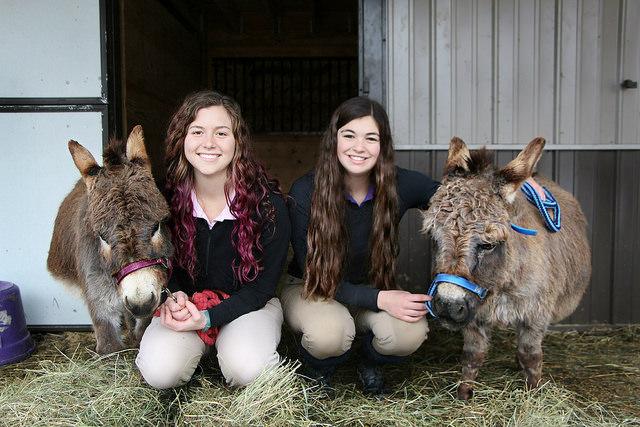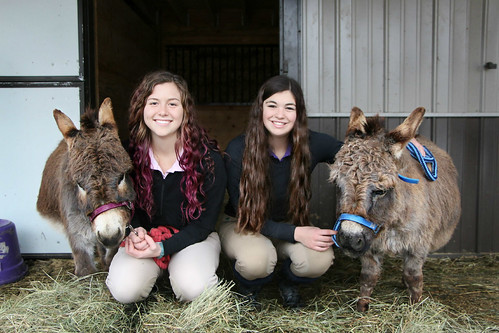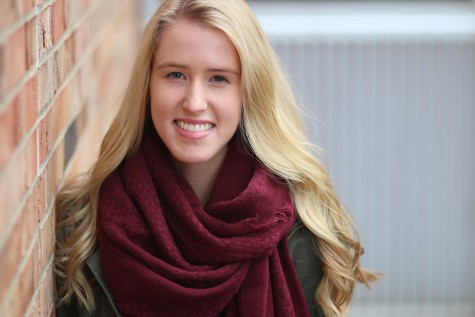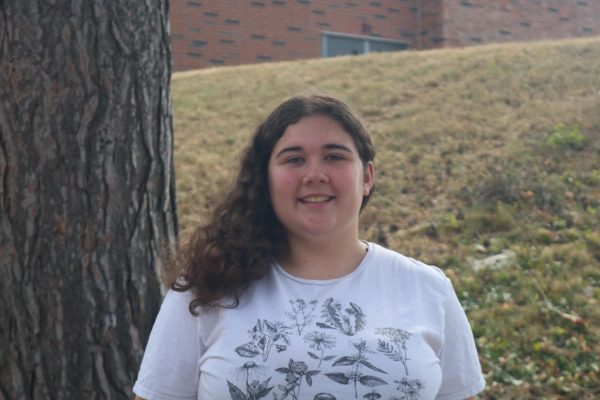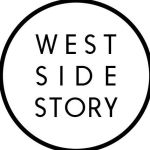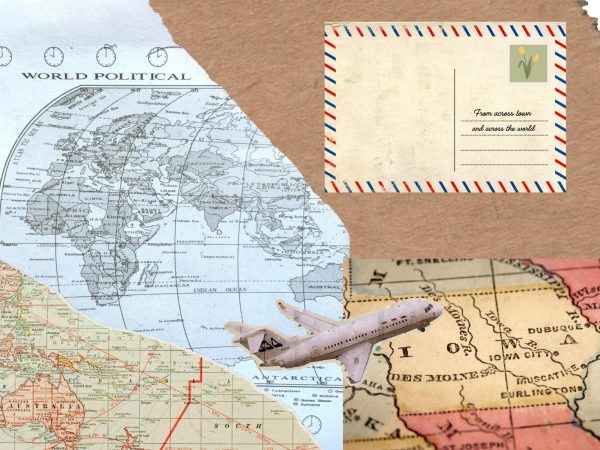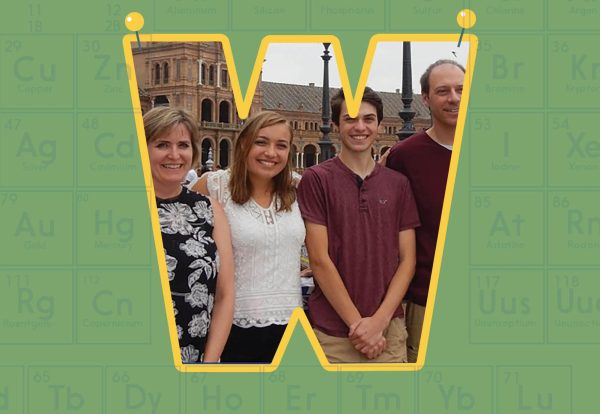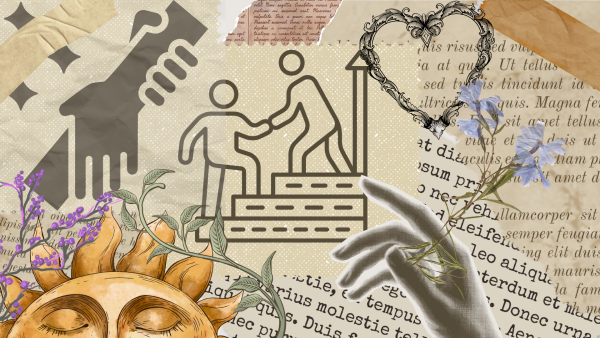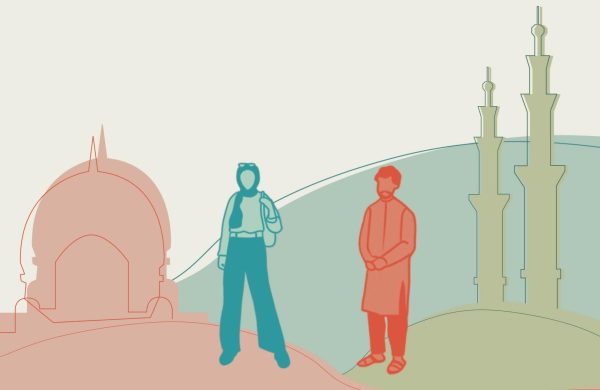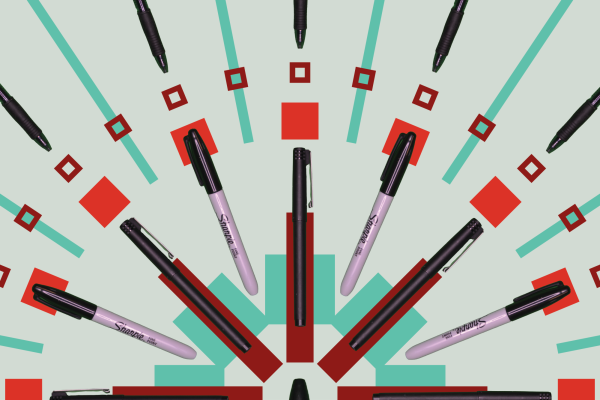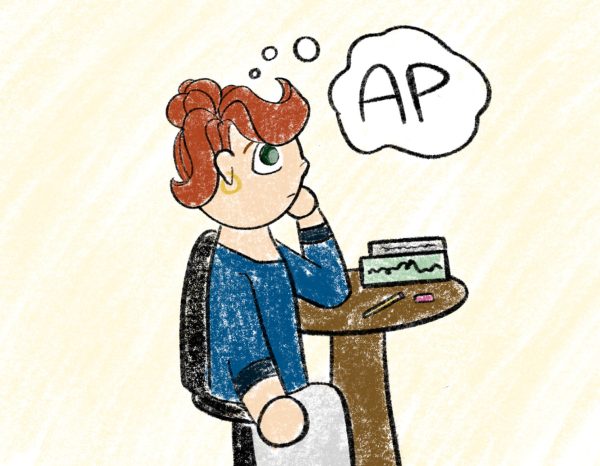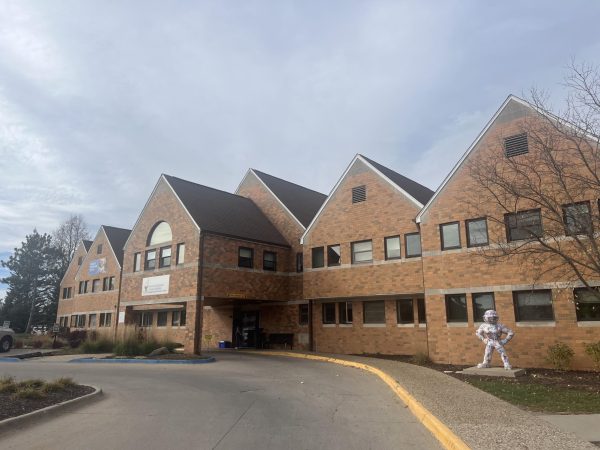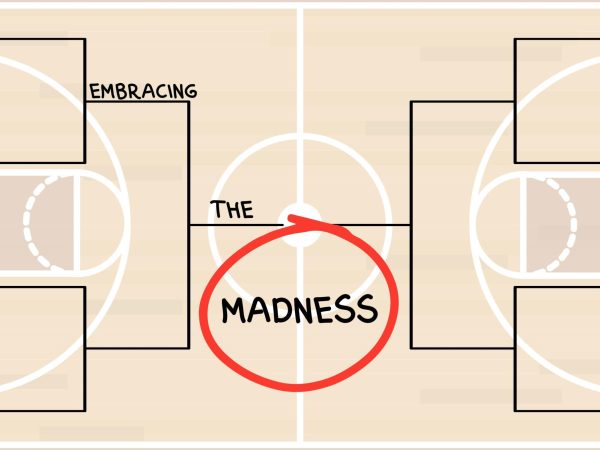Just horsin’ around
West Side Story got to sit down and talk with student equestrians about their love and experiences with horses.
February 19, 2016
When did you first begin riding?
Renata Thoeny ’16: I started when I was about six. I started out western though, and it was at a pretty run down barn. I think I started at Wyndtree when I was eight.
Molly Ruden ’17: I first started riding at Wyndtree when I was six but that was a once a month kinda thing and I stopped for a while when I was seven. I really starting getting into riding at Wyndtree when I was 10.
Maija Luttinger ’16: I sat on my first pony when I was two, his name was Tigger. But until I moved to Iowa when I was six, I didn’t have the opportunity to start lessons. I did weekly or twice weekly lessons until I was 12, which is when I got serious and started riding everyday, or more!
Erika Law ’16: I first began riding when I was seven years old, eleven years ago, on a pony named Phantom. My first seven years of riding were English discipline but then as time went on I switched over to the western side of things.
Why did you first begin riding?
RT: To be perfectly honest, the main reason I started riding was because my best friend did. She was the one who was horse crazy. It didn’t take long for me to catch up, though. From the first time I rode I understood what she meant.
MR: I’ve always loved horses and when I was younger I wanted to take riding lessons. My mom’s friend’s daughter was riding at Wyndtree and she recommended me to ride there.
ML: My mom grew up with horses, and she always told me stories about them. My first memory is playing with a horse doll she gave me. It’s hard to explain, but even then I knew there was something so special about horses to me. And when I first started riding, I got this indescribable feeling- like something was telling me “This is it. This is where you belong.” I still feel that way whenever I’m around horses.
EL: I loved horses from a very young age, I even had a horse for my Barbies. So from the beginning I always wanted a horse of my own, a dream I feel many little girls have. But as time went on I would see people riding and wanted to do it myself so convinced my mom to let me take riding lessons, then I convinced my parents to let me lease a horse. I ended up leasing three six years and finally bought my first horse in 2012 owning her for two years roughly, and then recently bought my newest horse Gretchen in March of 2015.
What kind of riding do you do? What do you do in this type of riding during practice and in competitions?
RT: We do hunt seat style riding. More specifically, we do equitation and hunter. It’s kind of hard to explain, but basically in hunter riding the horses are judged on their movement, jumping form and how well they maneuver a course of jumps. Equitation classes are judged on the rider’s position and effectiveness in guiding the horse in a slightly more complicated jumping course. A lot of people think this kind of riding is boring or easy, but I love it. There is so much connection between horse and rider, and riders have to work hard to make everything look effortless.
MR: During lessons we walk, trot, canter and jump. We’re always working on our effectiveness and technique in the saddle.
ML: I’m an eventer. Eventing is an Olympic sport that consists of three phases. Phase one, Dressage, is also an Olympic sport, and is kind of like dancing with your horse. It’s an art form really. Phase two is cross-country, the most fun you can have! Galloping over solid objects getting mud in your teeth and lighting strike the ground next to you- that’s what eventing is made of. Phase three is show jumping, another Olympic sport, which is jumping carefully and quickly over colored sticks. The competitions are a blast as well. There are competitor parties Saturday and or Friday night, where everyone at the show, a few hundred people, gets together and have a great time.
EL: I do western riding competitively. More specifically I do Western pleasure. Western pleasure is a beautiful way of riding where you communicate with your horse as seamlessly as possible with mostly just your legs and your body. In Western pleasure the goal is to have a low headset on the horse with loose reins showing how well trained and pleasurable your horse is to ride. This is a very competitive show world with many amazing horses that are bred to do what they are doing. In practice it is a lot of exercises to build up the horses muscles and help make them soft so that the respond to cues quickly and elegantly. It is also a lot of bettering the connection between rider and horse.
Why do you do this type of riding?
RT: It is the style of riding that was done at the barn my mother found to teach me to ride when I was young. I’ve grown to really love it though. I can’t imagine doing anything else.
MR: It was what Wyndtree had to offer and I loved it so I stuck to it.
ML: When I was 12, I read an article about Gina Miles, an eventer who had just gone to the Olympics, and discovered what eventing was. She was a total rags to riches story, started off poor and managed to make it to the Olympics and won Silver, something almost unheard of in the horse world. Because I don’t come from a super wealthy background like a lot of riders I was entranced and immediately decided I wanted to become an eventer. But what kept me in the sport is how much fun it is and how amazing the people are. Because of the extremely dangerous nature of eventing, eventers look out for eachother. There’s no cattiness like there is in many other sports, we cheer everyone on even if we don’t know you. Also, because we ask our partners to do so much for us, eventing is one of the only equestrian sports left where even at the upper levels the riders are totally responsible for their horses care. Thats one of the reason our bond with our horses are so special and we can do what we do.
EL: I have tried many different types of riding and honestly love them all for different reasons. I love English because it truly created my foundation for good riding. I learned great body control and how to have a great “seat,” also known as the ability to stay in the saddle staying in movement with your horse. I loved gaming for the speed and excitement that came along with it and finally I decided to stick with Western pleasure riding for now because I really just love the connection I feel with my horse when we are moving as one communicating purely through body language. Every time I see a pleasure horse I automatically assume they are a sweet loving animal. I also love the sparkle and glam there is in Western pleasure especially at the national and world wide level.
How much time is put into riding?
RT: I take lessons twice a week. Outside of that I try to get out to the barn as often as possible, but it’s hard with school and sleeping.
MR: I also take lessons twice a week and try to come out to the barn as much as I can to play with the donkeys or hack with my friends.
ML: I’m at the barn almost every day to ride my horse and take care of him or other horses at the barn as needed. That usually is around four to five hours a day, and on the weekends I try to spend more for special bonding time with Wes, my horse, and to clean or catch up on any barn chores I can help with. That’s during the school year, and on weekends during the season, May to September, I’m generally at a Pony Club event, a competition or a clinic all weekend. Or working to be able to afford to do those things, which also happens during the week. We also do a team training trip during March for two weeks to get a head start on the season.
EL: Well, that is a very difficult question to ask because for me I eat sleep and breathe horse competing. The literal time spent riding is probably 14 hours a week on the weeks without competitions. But that’s not all I do to prepare, I also spend time massaging my horse after rides because she is an athlete, I spend time bonding with her and getting her all her health needs. And on top of all that I work out every day to keep my body in the best shape I can be to be the best rider I can be. I need to have a very strong core to hold myself up and move well with the horse but also need very strong legs to have the best communication with my horse and to have a solid foundation. Finally I need a strong back to keep my riding from looking beautiful and graceful while the horse is moving underneath me. I work just as hard as my horse does because I want us to be the best team we can be.
Are you close to your horses?
RT: I would like to think I am. I know a lot of the little quirks Ernie has, but I’m pretty sure he does not like me much.
MR: Yes, a horse and rider share a special kind of bond that can’t be found anywhere else.
ML: Westley is my once in a lifetime horse. He means the absolute world to me and I think the feeling is mutual. We’re very close and I know everything about him. It’s really cool to have such a partnership, because when I’m with him I can pretty much tell what he’s thinking and feeling. And when I’m riding him it’s a true partnership, which isn’t something you get when you’re riding someone else’s horse necessarily. And our partnership is under a year old, I can’t wait to see how much better we get.
EL: I love my horse Gretchen. She is beautiful, strong and caring. She loves snuggles and can always make me laugh by making silly faces while I scratch her or massage her. I have been told many times that we are a great pair and have very similar personalities. She is honestly the closest connection I have ever had with any animal and she is only three so we have many more years to come.
What is your favorite part about riding?
RT: My favorite part of riding is probably the freedom it gives you. You get to team up with an amazing creature and do things you could never do on your own. In order to ride well, you have to leave any concerns or fears aside, so it helps me forget what’s going on in my life, clear my head, and enjoy something.
MR: My favorite part is how you are connect to the horse while riding and the brief moment you are off the ground when jumping.
ML: The bond with Westley, just being with him. But also galloping and jumping. It feels like flying.
EL: I love the confidence it gives me when I step into the ring. The days when Gretchen and I are on the exact same page and we move gracefully together, I just really love that connection.
What is difficult about riding? How do you overcome these difficulties?
RT: I’m a bit of a control freak in my everyday life, but when I ride I have to let that go. Riding is a partnership. I have to do my part but also step back allow my horse to do what he has to do. Sometimes it’s hard for me to trust that he can get it done without me interfering with every step.
MR: The most difficult part of riding is overcoming the mental part.
ML: For me, my biggest challenge has been being able to afford it. I’ve worked really hard and made a lot of sacrifices, and have been lucky enough to have parents who will do the same to help me. But on the pure riding aspect, probably the fact that I’m not a naturally athletic person, I’m not naturally a good rider with good balance and instincts. I have to work really really hard for a long time to do what just comes naturally to most of my teammates. But that’s ok, because I love the climb and struggle of figuring it out. And it makes me a better teacher for when I become a coach.
EL: I could go on forever with this question because there is so much that makes riding horses different than anything else. My teammate is a 1000 pound animal that could kill me simply by kicking me in the head or falling and landing on top of me, and I can only communicate through the sense of touch. I overcome these difficulties or fears by trusting my horse and believing that she will take care of me, but also by being smart about how I act around horses.
What have you learned from riding?
RT: Riding teaches you a lot of respect. You have to respect the other riders and their goals and skill levels. You have to learn to respect yourself and set reasonable goals based off where you are in your own riding. You have to respect the horses and everything they do for you. These horses are giving you everything they have to try and do what you ask. It’s the least we can do to respect them and take care of them.
MR: Riding taught me how to work as a team with something that doesn’t understand everything you’re trying to tell it to do. It also taught me a lot of responsibility and to take care of something besides myself.
ML: The value of being hard working, putting your whole heart and body into something and getting to see the end product. I wouldn’t be who I am today if I didn’t have a horse relying on me, expecting care every day and giving me a beautiful positive relationship back. Horses have taught me to always see a silver lining. But most importantly, they’ve taught me that you can work really hard, do everything right, and still fail. Because that’s horses. That’s life. And there’s nothing wrong with failing because as long as you’re doing that you’re still trying. And the more you fail, the better you’ll get. And someday it will be your time.
EL: Respect, body control, patience, patience and more patience. It is just part of who I am.
What is something that most people don’t know about riding?
RT: There is definitely an idea that riding is really easy, but it can be very challenging. I am not saying it is the most physically demanding sport, but it definitely is not as easy as it seems. It takes time to develop the right skills.
MR: When most people think of riding they think of Western but they don’t realize there are a lot of other disciplines with riding.
ML: A lot of people think that the rider “just sits there” and that’s not entirely true for any equestrian sport, but it’s especially not true for eventing. You have to be really fit to event, because you have to stay in balance off of your horse’s back as well as help them while you’re jumping, and you have to have exceptional body control and balance to do dressage. What a lot of people also think is that horse people are crazy. But that’s totally true. I only know, like, two sane horse people and they aren’t even that sane. But it’s not all bad crazy.
EL: When you ask if you can ride someone’s horse it’s like me asking you if I can go drive your car with my eyes closed. Don’t expect to just be able to get on and know what you are doing.
What is your favorite riding memory?
RT: My favorite memory is probably the first time I rode my horse after I officially bought him. It was such an amazing feeling to know that I could call him my own. The amount of freedom I felt that day while riding him was incomparable.
MR: My favorite memory is the first time I jumped. For that half a second you’re off the ground you feel like you’re flying and nothing can stand in your way.
ML: I had an amazing cross country run on Wes this fall, it was foot perfect and I felt like we could do anything after that. I wish my parents had been there to see it, especially my mom, because she almost only sees Wes try to dump me.
EL: [There are] so many wonderful memories, but my favorite is probably the first day I got on my old horse Belle who was a huge Friesian horse. At my barn of the time she was known to be a problem horse and would try to buck everyone off, but for some reason picked me to allow to ride her and we ended up having a great connection. I loved her dearly.
Who do you ride with?
RT: The barn has a really good community, and I am friends with most of the people there. I have two trainers, Sarah and Teresa.
MR: It really depends on who I have my lessons with but everyone at the barn is fun to ride with.
ML: my coach, Hannah Jungling, is probably the best thing to ever happen to me horse wise. She’s incredible, such a talented hardworking teacher and just so fun to be around. I live with her and her husband during the summer. We have a team at a private barn, and they’re all really amazing people.
EL: I ride with my trainer Carla Hinton, my soon to be roommate Audrey Lester, and many other people at my barn and the people I always see at shows.
Why do you have donkeys?
RT: One year we convinced our trainer to get some. It was the best thing I’ve ever done.
MR: Because they are very cute.
Are you close to your donkeys?
RT: Out of the people at the barn, our group is closest to the donkeys. I’d like to think they like us.
MR: Even though sometimes they don’t want to have fun in the indoor with us the donkeys still enjoy the time. The treats help.
Click on the photo below to view more pictures.
Photos by Paige Brazina.


